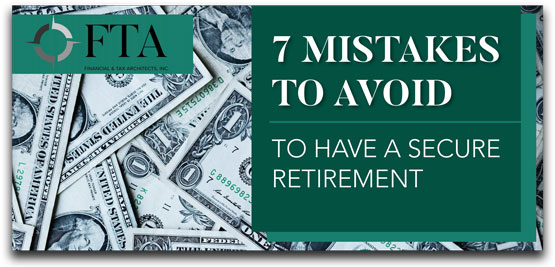What Questions Should I Ask About Retirement Planning?
5 MIN. READ
One of the most important decisions to make regarding your retirement is deciding whether you need help and, if you do, how to select an investment professional. Given the impact a quality financial advisor can have, who and how you select from the endless options available to you may determine how satisfied you are during your retirement years.
A comprehensive retirement plan can help you achieve your goals, however, that largely depends on getting good answers from an advisor who has your best interests in mind. As you begin to think more seriously about retirement and search for the advice of a financial advisor, it’s important to ask some key questions to help you understand the best path forward.
Finding a financial advisor that suits you
Deciding which advisor is right for you often depends on your financial sophistication. If you have the knowledge and experience to handle certain aspects of your plan, you may want to use someone who specializes in the areas where you are weak. Once you know how much help you need, there are many options to pursue advice:
- Discount brokerage
- Robo adviser
- Full-service brokerage
- Investment advisor
Preparing to meet with a financial advisor
Regardless of the option you settle on, meeting with an advisor provides you an opportunity to review your financial goals, analyze their efficacy and set new goals, if necessary. Writing down your financial goals in order of priority can prove helpful.
In addition to your goals, you should take note of the status of your emergency fund, whether you will need money for expenses like home renovation, or do you plan to pay for college for your children or grandchildren. Also note your debts, including any plans for how you will pay them off. The more open you are about your goals and challenges, the easier it will be for a financial advisor to answer your questions and tailor a plan that’s best for you.
When you sit down with an advisor, you should know whether they are a fiduciary, like Financial & Tax Architects. This means they are required to adhere to the definition of fiduciary – they must put their client’s interests before their own. While there are many financial professionals, all of them may not be a fiduciary.
Asking questions about their experience, education, and even their motives for their career can give you valuable insight into just how important you are to them and whether they will put your interests first. At the end of the day, you’re looking for someone to help you with your retirement planning, not theirs.
Questions to ask a financial advisor
Asking the right questions about retirement planning can be tricky. You know your own financial situation better than anyone. However, understanding how to make it work for you in retirement is a whole other issue. To help you establish some footing, ask key questions, such as:
- Generally, what do you believe are the most significant risks in retirement? What about people in similar situations to my own? Knowing the most frequent risks in retirement will allow you to better plan for them – and help you avoid any unwanted surprises. An advisor is a great resource to help identify risks.
- How much do I need to retire comfortably in the lifestyle I desire? Knowing what your lifestyle costs will help you determine what the true necessities are and what you can afford to give up. It will certainly help to shape your financial goals.
- How long will the money in my retirement fund last? If there is a possibility that you could outlive your retirement fund, you need to know – and plan accordingly.
- When should I start saving for retirement? In truth, it is never too early to start saving for retirement. Starting later will usually require a more aggressive approach to saving. At Financial & Tax Architects, one of our financial advisors will walk you through your options so you can begin to make up for lost time.
- How much can I save each year? This is another goal-setting mechanism that will allow you to watch your retirement fund grow. A good rule of thumb is to save 15-20% of your income.
- Does my employer offer any extra help in saving like matching contributions? Some employers offer benefits like a 401(k) match. It is always a smart idea to take advantage of any employer-sponsored retirement savings plan.
- Will the way I invest change as I age? As we age and reprioritize spending, everything from our lifestyle to our financial status changes. Your investment strategies should change too.
- How should I plan to spend – from which accounts and when? Your advisor can help you set up a spending plan to keep you on track with your goals.
- How can I control taxes in retirement? Taxes are complex. Knowing what you can do to control them will allow you to optimize your retirement fund and get the most out of your money.
- How would working during retirement affect my financial position? Some people can work during retirement without any financial repercussions, but it is best to know what your limits are going in.
- When/how do I apply for Social Security benefits? To achieve optimal financial gain, it’s important to know the best time to apply for Social Security benefits. File too early and you could be penalized. It is best to talk with a financial expert like Financial & Tax Architects to determine the right time for you.
- Should I take my pension as a lump sum? In some cases, taking your pension as a lump sum is a smart financial move. Other times, accepting payments may be better. Review your financial goals and the terms of your pension to determine what is right for you.
Choosing the right retirement products
There are many retirement products available today. Talk to a professional advisor (and do your own research) to identify which ones are appropriate for you:
- Stocks and bonds are a popular investment choice, but the balance of risk in your portfolio will change as you near retirement.
- Qualified versus non-qualified money benefits vary according to financial goals and needs. Most retirement accounts offer some kind of tax advantage, but they also have reduced liquidity features in return for that advantage.
- Annuities can replace the defined benefit pension, which is quickly going the way of the dinosaur.
- Alternative investments such as hedge funds and private placements have recently been made more easily available to the average investor.
When you are ready to begin your retirement planning journey, we’re here to help. Contact Financial & Tax Architects to schedule your appointment to meet with one of our financial advisors. As a fiduciary, your best interests are our first priority.
Article Sources:
https://www.fool.com/retirement/general/2014/09/19/how-to-find-a-retirement-planner-5-tips.aspx
https://www.investopedia.com/articles/retirement/07/retirement-questions.asp






